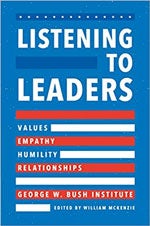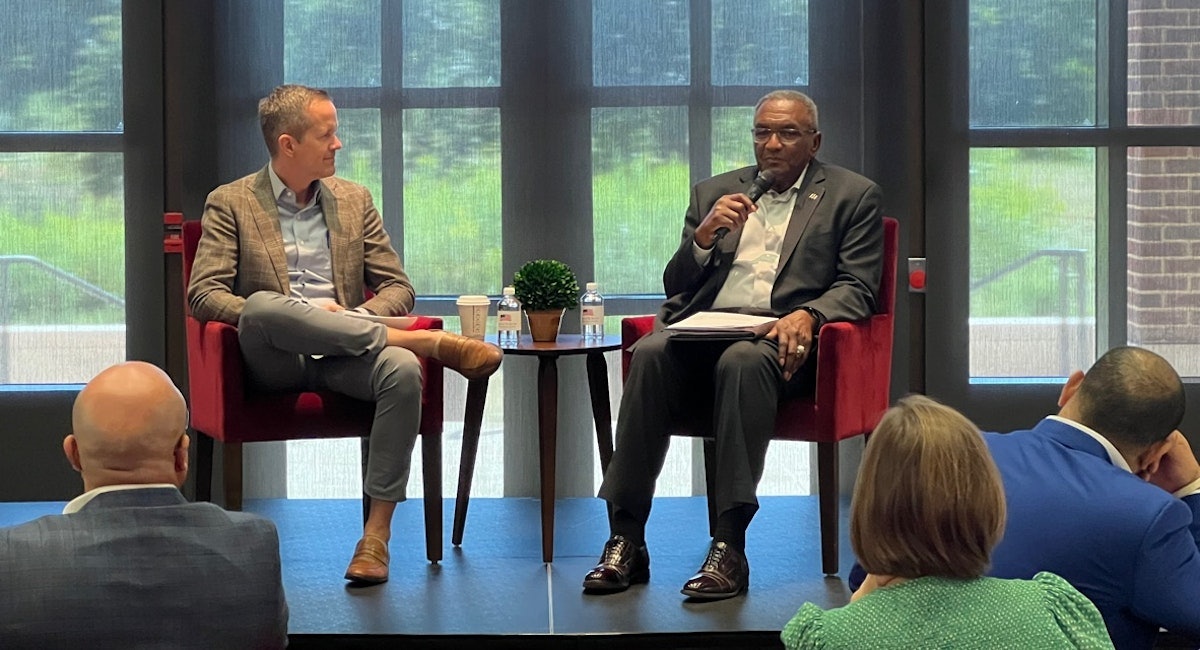Ann Clark led the Charlotte-Mecklenburg school district as superintendent after having served the respected district as a teacher, principal, and administrator for more than 30 years. Now a district advisor for the George W. Bush Institute’s School Leadership Initiative, Clark notes in her Listening to Leaders interview that simply being available to colleagues is how leaders start to develop trusting relationships. She also believes leaders must build up the capacity of others to do their work.
Buy the Book

This article is an excerpt from the Bush Center’s latest book. Read the full interview with Ann Clark in Listening to Leaders.
How do you define great leadership?
I define leadership as the ability to collaboratively develop a vision that inspires people to set high goals for their team.
You have said that corporate leaders can motivate staff with bonuses and big salaries, but educational leaders have to offer their time. What did you mean by that?
To me, time is what I could control. I could spend it affirming their choices of being teachers or administrators or whatever their role was.
For me, it wasn’t just about walking around, it was about establishing relationships, being intentional when I was talking to someone, and not being distracted by technology, the phone, or the bell. Intentional chatter with people makes a big difference.
Is that ability to relate mostly innate, or can it be learned and coached? And if it can be learned and coached, how do you do that in a school setting?
I am an incredible introvert, but few people who know me would be convinced of that. Absolutely you can learn to build relationships. The way I saw the role of a principal and a district-level leader in a large district was that you had to build relationships, you had to have executive presence, and you had to have a leadership voice.
If a person realizes it’s important, you can be coached on it. I’m far from a natural cheerleader personality, but I know what inspired me to follow a leader was that relationship piece. I knew if I was going to be a successful leader, I would have to develop relationship skills.
You have likened the principal to being the linchpin in the air traffic control tower. Why is the principal so key? A lot of people perhaps think the teacher is the most critical person in the school.
The principal is the key lever for transformational change at a school. Everything they do supports the magic that happens in the classroom between a teacher and a student.
Great teachers might be hired by a mediocre principal, but they won’t stay at a school with a mediocre principal. To create great learning experiences with amazing teachers, you need a leader that will motivate teachers to continue to do their hard work.
What worked well in reaching so many different constituencies you have to reach as a superintendent?
I very much had a communication strategy. For example, I communicated with 18,000 employees every Friday in a message called A Note from Ann. And I was highly visible in the community just as I was as a school principal. I wanted people to know me and have a relationship with me so they better understood my “why.” That helped them better understand my decisions. They knew me as a person and a leader.;
How much time could you focus two-to-three years ahead vs. having to manage daily challenges? And what advice would you give to leaders about creating time to think ahead?
The leader needs to hire someone underneath them to run the day-to-day while they keep themselves at the strategic level. That’s where they can inspire, build relationships, and connect the strategy to the vision.
Read more from Ann Clark on developing leaders in a major school district in Listening to Leaders




























